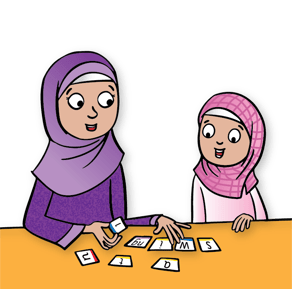Newsletter
A short sentence describing what someone will receive by subscribing
Newsletter
The role of parents in reading instruction
Professor Pamela Snow published another interesting blog to The Snow Report recently 'Calling time on parent-blame and children's reading success', in which she discusses the impact of balanced literacy on parents and home reading.
.png?width=680&height=198&name=Copy%20of%20Blog%20Banner%20(2).png)
Professor Snow summarised the role of parents in reading instruction at home as:
- "To engage in language rich interactions, elaborating on children’s utterances, teaching new vocabulary, and the meanings of common idioms.
- To model reading as a valued, worthwhile activity in their own lives.
- To read to their children (ideally even after they can read for themselves).
- To provide access to quality children’s books (in the home and via library visits).
- To listen to their children reading instructional texts they bring home from school, providing feedback and encouragement."
Professor Snow's blog raises some food for thought - are we sending home the best materials to support parents/carers and their children to practise and apply at home? How much emphasis are we putting on home-reading? When students struggle with reading are we asking what the cause is, or are we asking parents what they are doing at home? The change from balanced literacy to a structured evidence-informed approach requires a change in mindset when it comes to home reading.
Tips from the Little Learners Love Literacy team
For teachers
At Little Learners Love Literacy we work with parents, students and schools. We encourage schools to send home decodable books for practice - we want children to build fluency and confidence, being engaged by a feeling of success and pride in what they can do. The key to getting this right is ensuring no new learning is taking place at home - just practice and application of skills and knowledge already taught in the classroom. Try:

- Sending home a decodable book the student has already read in the classroom.
- Educating parents on strategies when their child gets stuck.
- Ensure the decodable book is read more than once at home
- Recognising that the most powerful support parents can give at home in Terms 1 and 2 is discussion for oral language development and reading to their child quality storybooks.
- Sending home a range of library books each week for parents to read to their child and discuss.
- Sending home some simple phonemic awareness games - the Milo's Parent Letters is enough.
- Sending home complementary practise activities such as handwriting practice and Read, write and draw.
- Don't put too much pressure on home reading and learning - ask parents to play, talk, practise.
For parents
At Little Learners Love Literacy® we believe all children can be successful readers, writers, and spellers. They just need the right tools, explicit teaching, plenty of practice and your support. Visit our new parent page to find articles, videos and resources, as well as tips on reading decodable books and library books at home:
Related Articles
Character Cards
Originally Posted by on 19th Mar 2020 Children love getting to know Pip & Tim and their friends, so...Alignment with Victoria's Phonics Plus
We warmly welcome the arrival of the Victorian Department of Education's Phonics Plus resource....Subscribe to our newsletter
Stay informed on the latest products, events, catalogues, resources and inspiration.
Newsletter
100% free, Unsubscribe any time!
Subscribe to our Newsletter
Stay informed on the latest resources, professional learning, events and more!
Contact Customer Support
We're here to help you - email or call us with your query.
Subscribe to Our Blog
Get latest insights sent straight to your inbox.
